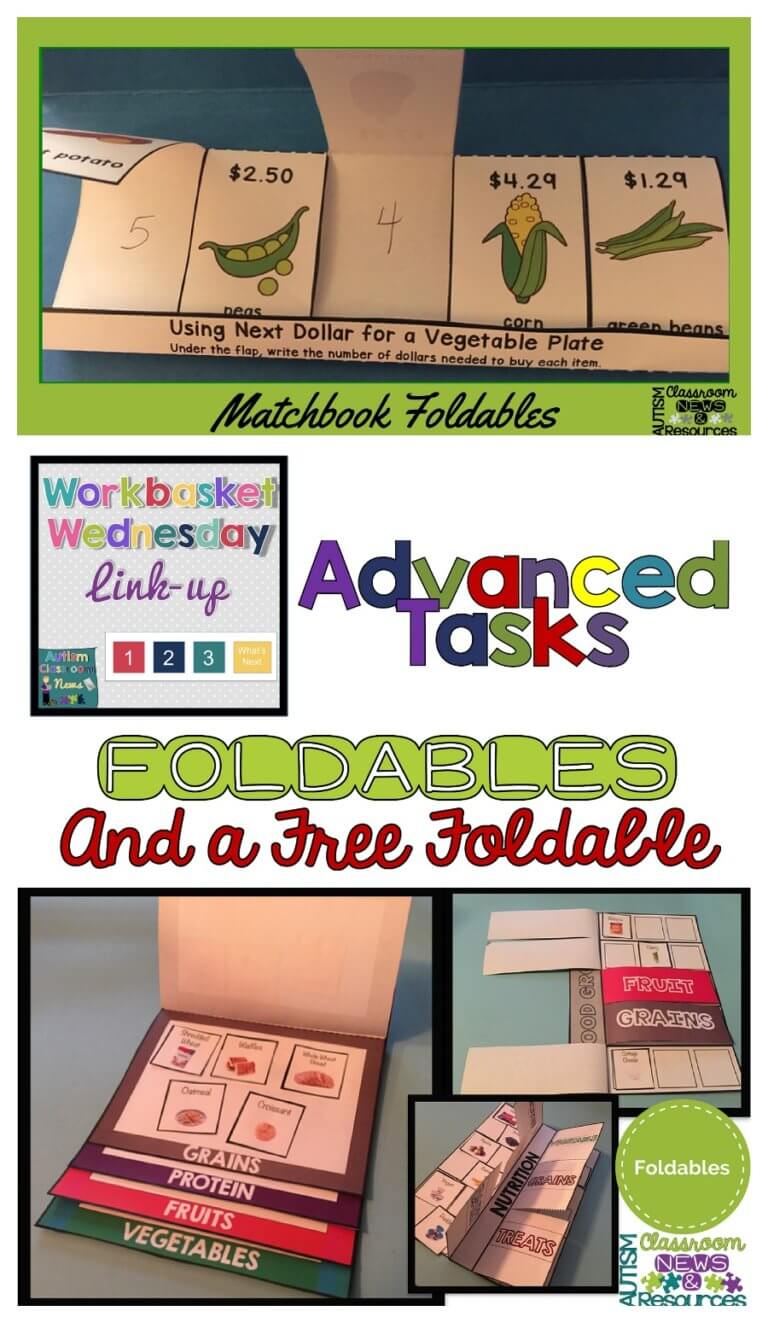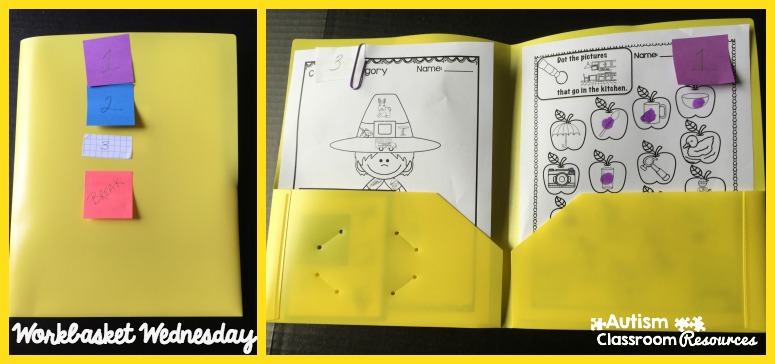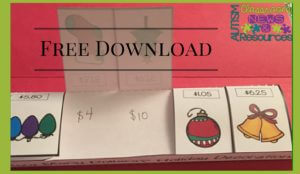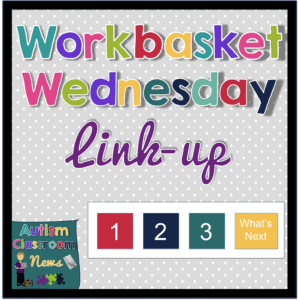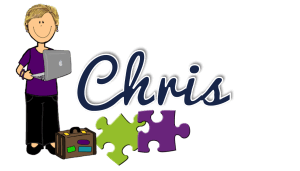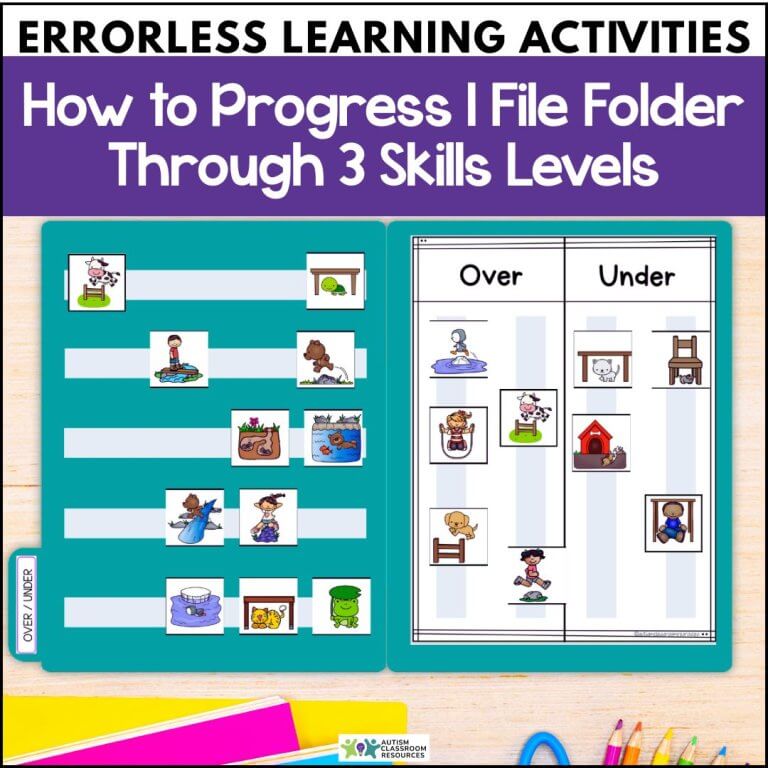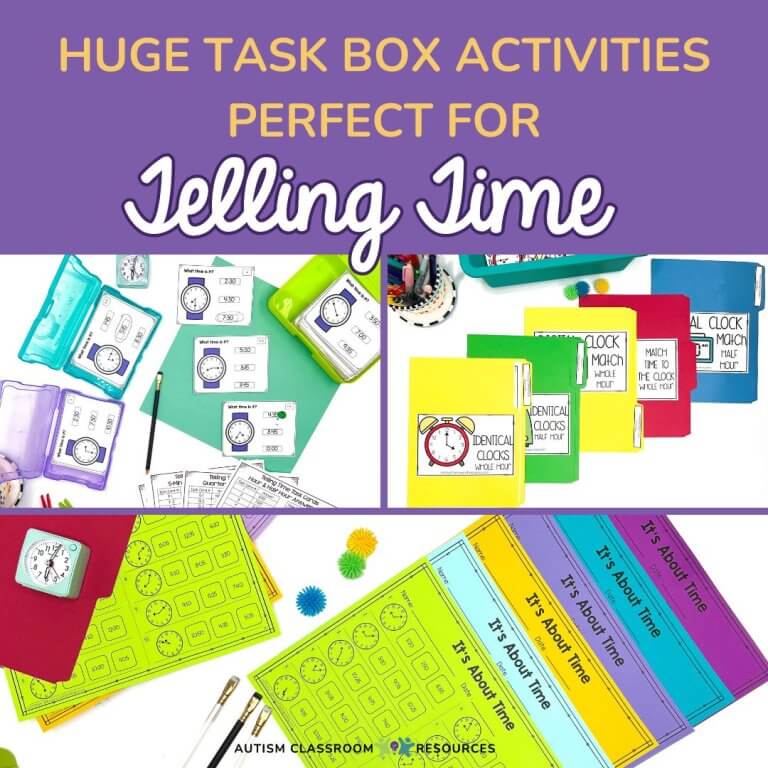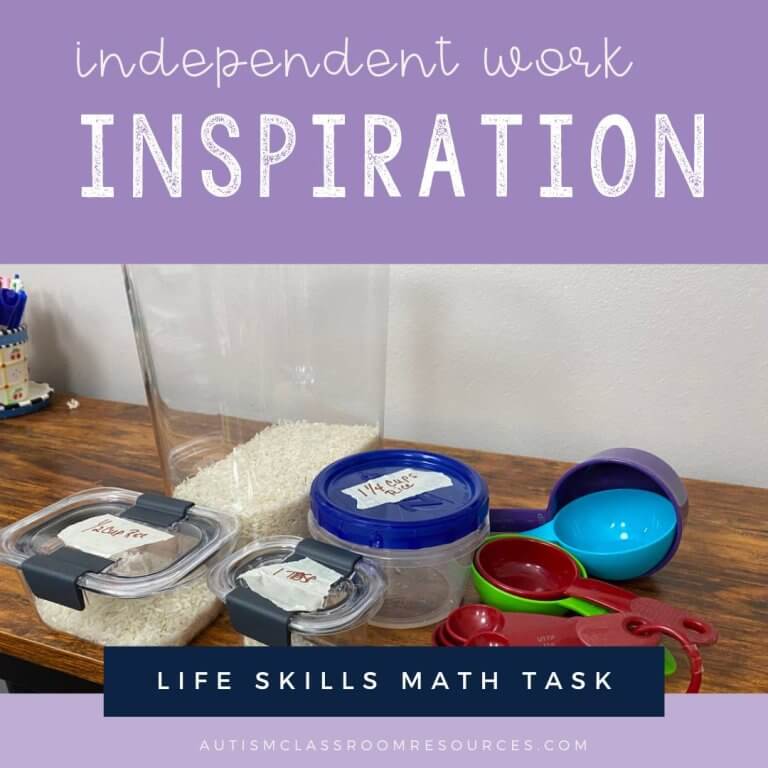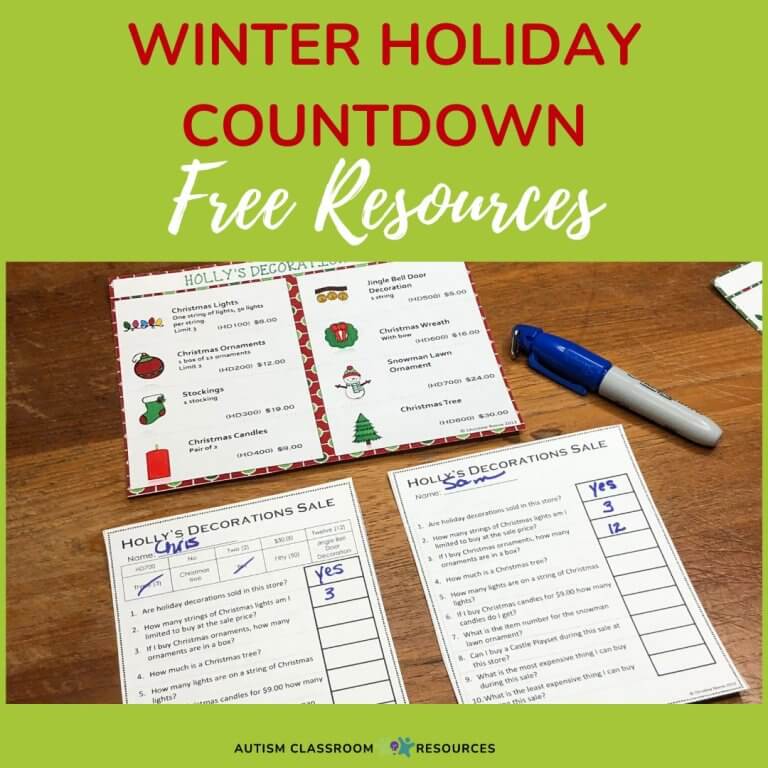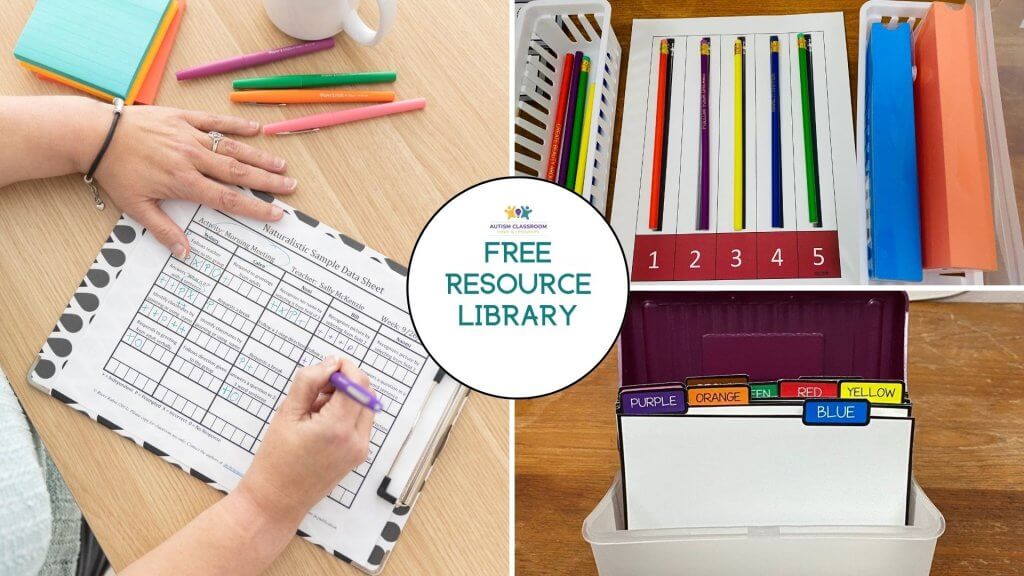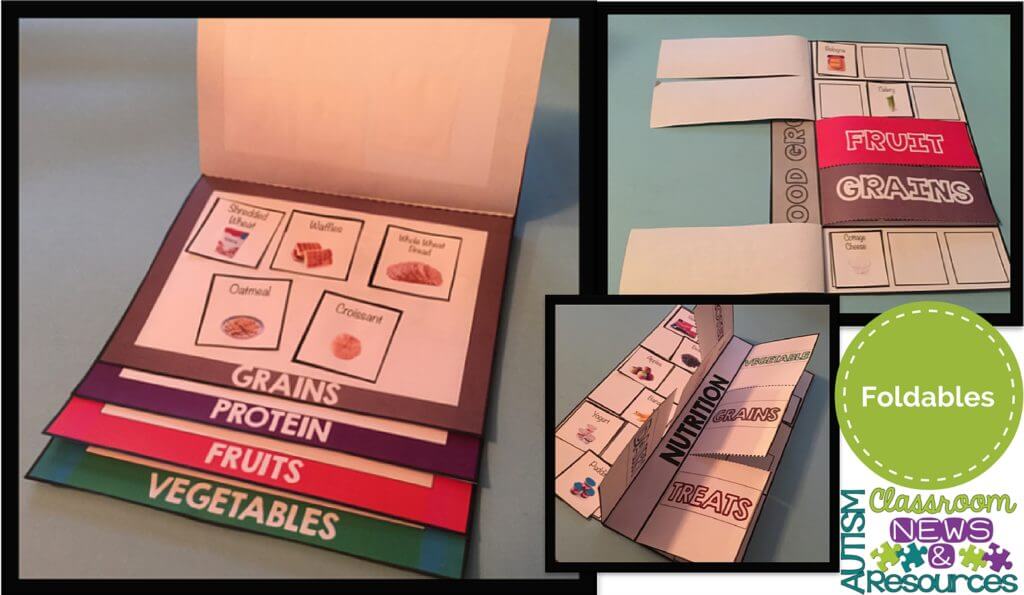
Foldables and interactive notebooks are popular in general education and commonly used in many classrooms. We don’t see as much use of them in special education and autism; however they have some unique characteristics that may make them a great match for some students in structured work systems.
A couple of months ago I talked about some ways to use structured work systems for students who have more advanced skills–those who don’t need a basket system and/or might be spending some or all of their time in a general education classrooms. I showed this file folder system and talked about structuring it so that it still gives clear expectations and answers the 4 questions: What work? How much? When am I finished? What do I do next?
[Tweet “Foldables can be great tasks for structured work systems”]
Today I thought I would share some reasons for foldables to be a good fit in structured work systems for students on the spectrum. When deciding whether to use them, remember that students have to be able to complete their system independently. So for foldables that means they have to be able to complete the steps of using foldables in general on their own, or we need to provide some type of support, like a task analysis, to do it (I share one below).
Why are Foldables Good for Structured Work Systems?
- First, foldables and interactive notebooks (that are typically made up of a variety of foldables) are a different way to interact with the material. They can provide graphic organizers (good for helping students with autism map out and comprehend connections of information) as well as promote more active learning rather than listening to or reading the same information. They also can work to help students review information in an organized manner and practice skills.
- Next, most foldables have a clear beginning and ending point. Take the matchbook format below. The student constructs it by cutting it out if necessary and folding over the spaces. Then he or she writes in the answer. When all the boxes are full, the task is complete.
- In addition, they allow students to demonstrate knowledge (in a permanent and personal form) without doing a simple worksheet. It shakes things up a bit with the type of activity they do and requires some different skills like following directions and cutting.
- The final advantage is for the teacher. They provide interaction in learning without having to cut and laminate. The students do the work.
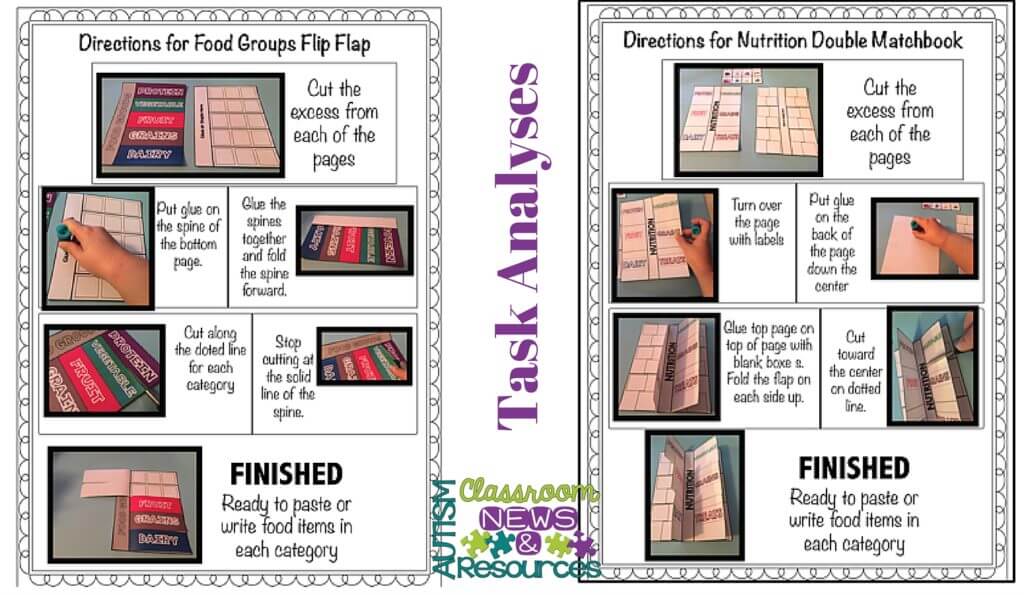
Considerations in Using Foldables in Structured Work Systems
- As I noted above, students need to be able to complete the foldable on their own. They would not be a good choice for work systems if the student has difficulty (or frustration) cutting, sequencing actions to follow directions, or writing /coloring. They are something that would have to be taught, but once taught can help to increase opportunities to do the same work as other students within the general education classroom.
- Make sure to only include the materials needed to complete the specific task. Don’t include extra pages or additional materials that will confuse the student.
- Consider including a model of the foldable (without the learning task completed). It could be just a picture of the completed foldable like the one below.
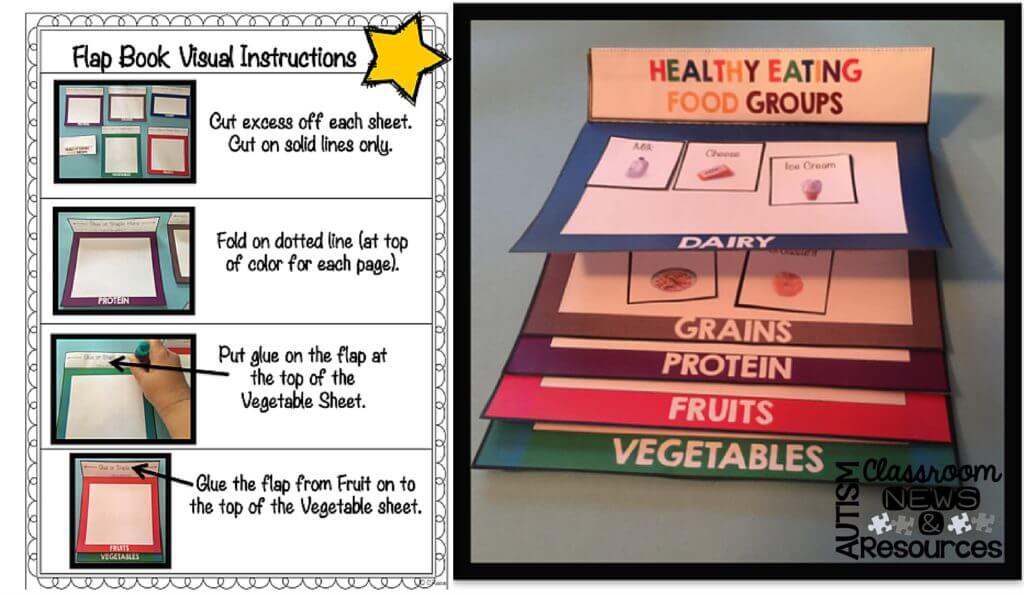
This is available in my All About Healthy Food Unit–click the picture. - Finally, you can put them in a folder, as you would a worksheet, and have them store them in a notebook or put them in the finished pocket of their folder. Or you could use an in box / outbox system instead of folders if the finished product doesn’t lay flat. You can choose to keep them in interactive notebooks that they can review periodically–technically what they do in independent work would be the Output side of the pages in interactive notebooks. You would use the input for teaching and some of the output would probably be done in teacher-led instruction.
So, I thought I would share a freebie that I created and shared last year at this time. If you have students who are working on either rounding or Next Dollar strategies, these matchbooks might be a good addition to your work systems over the holiday. Click the picture below to download it.
I want to thank everyone who supported my store in the TPT Cyber Sale the last few days! It means so much to me.
D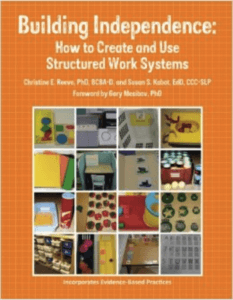 on’t forget to link to Workbasket Wednesday with any post on work systems including tasks or the systems themselves. Just follow the directions below. Don’t have a blog and want to participate? Share your photos on Instagram with the hashtag #WorkbasketWednesday and tag me @autismclassroomnews and I will be sure to share them with the group!
on’t forget to link to Workbasket Wednesday with any post on work systems including tasks or the systems themselves. Just follow the directions below. Don’t have a blog and want to participate? Share your photos on Instagram with the hashtag #WorkbasketWednesday and tag me @autismclassroomnews and I will be sure to share them with the group!
Looking for more ideas on work systems and how they can be used? Check out the links below for more posts. And, I wrote about a book about them! Click on the book to the left for an Amazon Affiliate link (see my disclosure policy for more information about affiliate links). And check out my Pinterest boards for Work Tasks.

